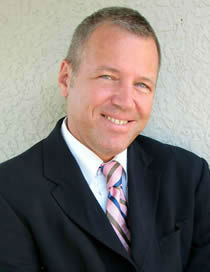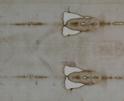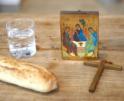
Spirituality
Mortal sins kill the supernatural life of the soul. However, these Capital Vices, although they certainly will lead to mortal sins, usually show themselves at first in small things, involving "venial" sin.

Pakaluk
The Russian war against Ukraine has led many of us (not simply Pakaluks and others of Ukrainian descent) to consider that this Lent we need to go deeper. May I suggest finding an hour in front of the Blessed Sacrament, specifically to examine yourself with respect to those deepest inclinations to sin inherent in fallen human nature, what people call the "Seven Deadly Sins?"
This popular name is quite misleading. Traditionally, they were called, rather, the "Capital Vices." The difference in the name is important. Why are they better called vices? Understand a vice as a bad habit; something untoward which is characteristic of us; something which inclines us in a bad way; something which will assuredly lead us to act wrongly unless we are vigilant and put up a fight. These Capital Vices are properly conceived not as actual sins that some especially evil actors commit, but rather as sources of sin, which afflict us all, on account of our fallen human nature. Therefore, they are never merely someone else's problem -- "that glutton over there" -- but they are problematic for each of us. Each of us needs to ask, "what is my particular struggle with (say) gluttony?" -- because there will certainly be an answer.
Second, it is misleading to call them "deadly." The most natural meaning for a "deadly" sin would be a "mortal" sin, that is, one that is so serious in its matter and bad will, that it cuts us off from the life of grace. Mortal sins kill the supernatural life of the soul. However, these Capital Vices, although they certainly will lead to mortal sins, usually show themselves at first in small things, involving "venial" sin.
Here is a homely example. I have found that it happens, more often than can be explained by chance, that when I or a friend acquire some lovely, new possession, which we were really keen to get, within the first few days of ownership it gets nicked, damaged, or marred in some way, by some bizarre accident. My "attachment" to that new possession (an expression of the Capital Vice of "covetousness") was still rather small and slight -- not "mortal" for sure. Yet, I interpret these "accidents" as corrections from God, putting me on a better path while the problem was small and easy to remediate.
But then why are they traditionally called capital? This label is from the Latin word for "head," which we use for leaders -- "headmaster," "head of school," "head honcho," and so on. Think of them as sins which show leadership among sins. They muster other sins and direct them so that the inclination of the "capital" vice may reach its object. Extreme examples risk giving the wrong impression, because, again, our struggles with these vices usually look small. But it's notorious, for instance, that a married man intent on committing adultery (an expression of lust) will eventually be drawn into many other vices, such as deception, financial mismanagement, dereliction of responsibilities at work, indiscretion, hardness of heart towards his children, and foolish befuddlement of his judgment -- to name just a few.
What are the Capital Vices anyway? It helps to have a mnemonic. Since they arise from fallen human nature, picture a human body, then, in the midst of external goods. Consider the human body, top-down, as having four locations:
-- The head, at the top, the place of the "intelligence," is closest in resemblance to the angels and fallen angels: associate with it the capital vice of vainglory, which is the inordinate regard for our own excellence.
-- The heart, next down, the place of affections and commitments, is what God most wants of us ("where your treasure is, there your heart shall also be.") Associate it, in turn, with the capital vice of sloth, which is not laziness but rather sadness in maintaining our relationship to God.
-- Next down, the stomach: associate it with gluttony, the tendency to desire food and drink in a disordered way.
-- Next down, the loins: associate it with lust, the tendency to desire sexual pleasure and satisfaction in a disordered way. (Let's be clear that this means to desire and seek it other than in a chaste embrace within Holy Matrimony.)
The last three are harder to remember but recall first that in the classical conception of human nature, there are three principal external goods: wealth, honor, and "friends" (or more generally, "your neighbor.") Then:
-- Covetousness is the inclination to desire external goods in a disordered way.
-- Anger is an inclination to be solicitous of perceived (usually imagined) offenses against us in a disordered way.
-- Envy is an inclination to accept another's good fortune in a disordered way -- that is, to be grieved at it rather than delighted.
Expressions of these capital vices are all around us: the snark on Twitter (anger), offense taken by the putative "1 percent" (envy), acquiring more possessions than we reasonably need (covetousness), acquiring far more body bulk than we reasonably need (gluttony), pervasive narcissism on social media (vainglory), absence of prayer (sloth), a sex-saturated culture (lust). Yes, these vices have structural and cultural dimensions.
But it's easy to decry these things in others, maybe with the lament that "things are going downhill." Much harder -- but surely a good task in Lent -- is to see how I am weakened and tripped up by them. For that, maybe ask the Holy Spirit for insights and grace.
- Michael Pakaluk, an Aristotle scholar and Ordinarius of the Pontifical Academy of St. Thomas Aquinas, is a professor in the Busch School of Business at the Catholic University of America. He lives in Hyattsville, MD, with his wife Catherine, also a professor at the Busch School, and their eight children. His latest book is "Mary's Voice in the Gospel of John" available from Amazon.
Recent articles in the Spirituality section
-
He saw the cloths and believedBishop Robert Barron
-
God's instrument for viewing the crucifixionMichael Pakaluk
-
QuinquagesimaMichael Pakaluk
-
Pro-life Christians: Now is the time to shout from the rooftopsBishop Robert Barron
-
Seeking an indulgence as an act of faithMichael Pakaluk


















